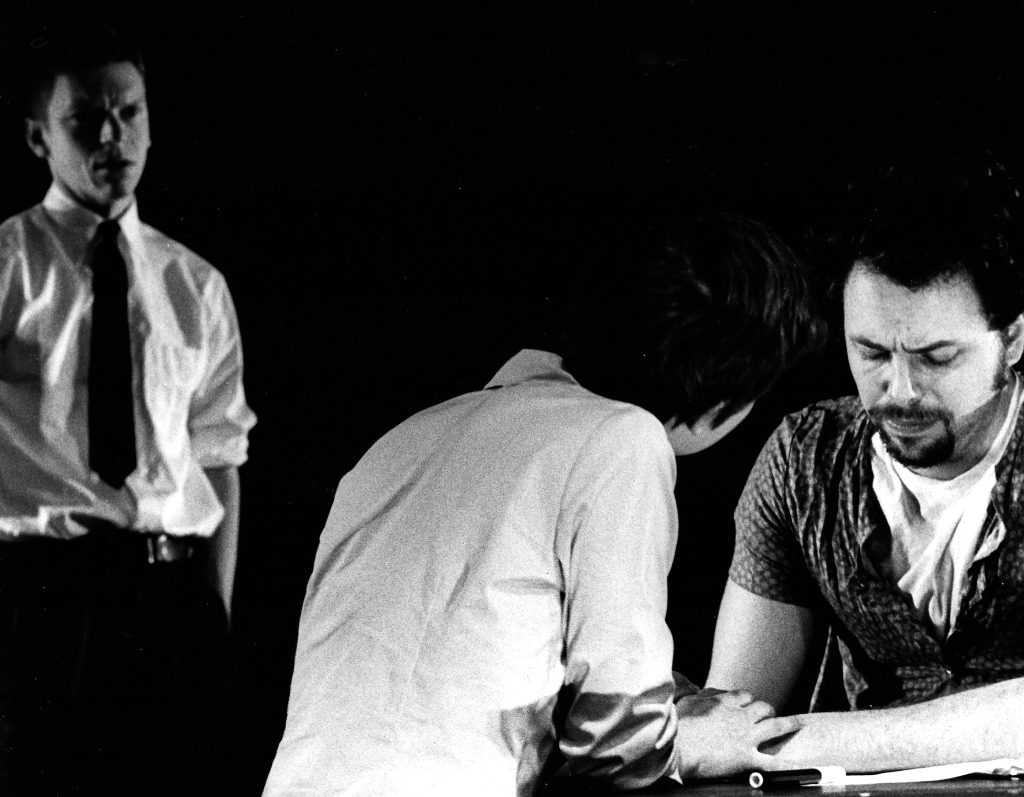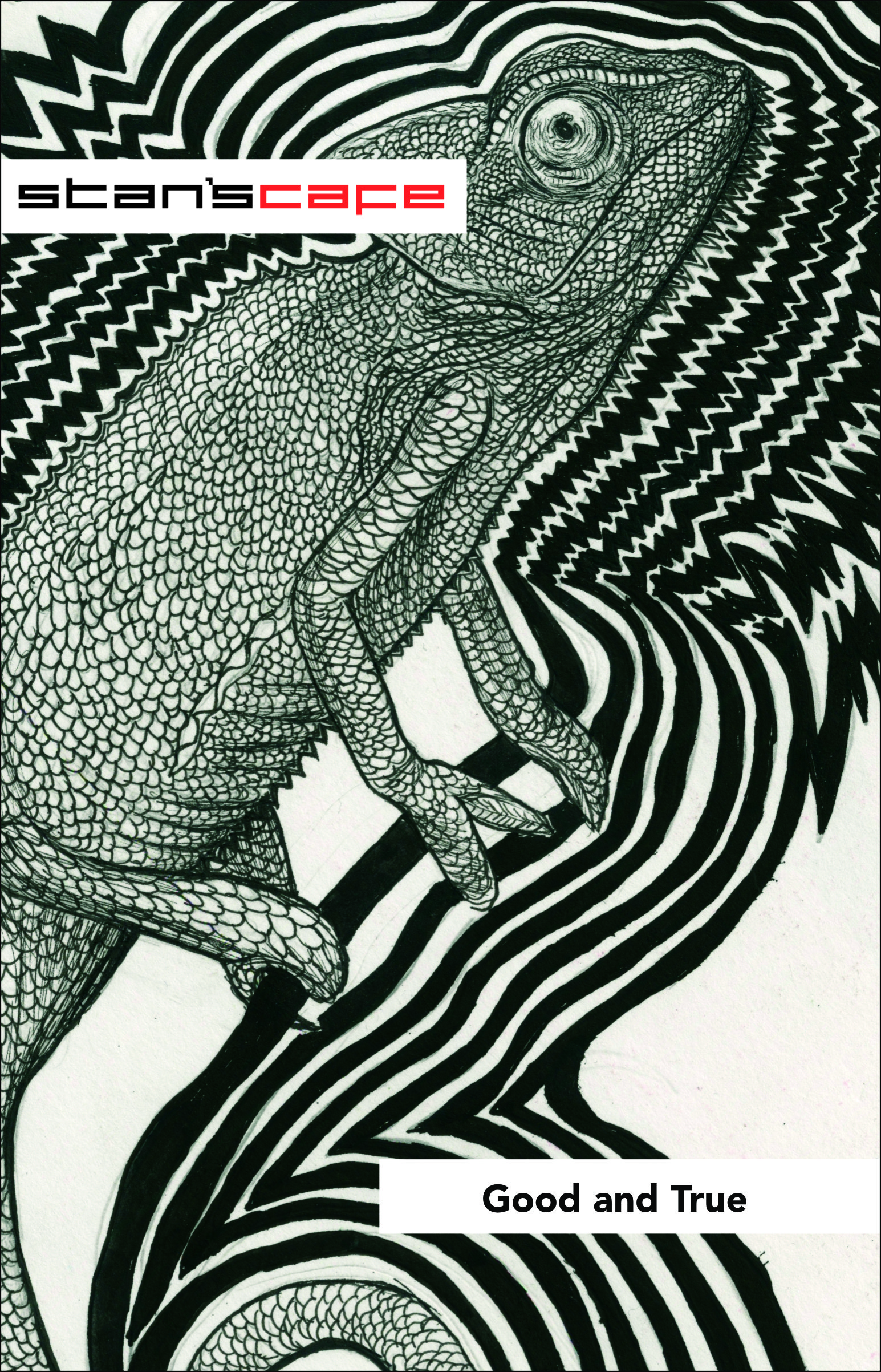
Four lost interrogators are thrashing around in areas they’re hopelesslyunderqualified to deal with. They try everything they can to discover the truth but when they get close to it, they don’t recognise it. Questions areasked and answers are given but nothing ever quite adds up. Facts slide around,become crystal clear for a moment, but then are gone. They play at being hard boiledcops and philosophers, psychiatrists and drummers, market researchers and superheroes in their search for answers. But as twisted lines of questioningcross and re-cross and absurd speculation meshes with dodgy evidence, spilt tea and Tippex, they discover how some questions tell their own lies.




Tour Dates
-
10th & 11th November 2004
Warwick Arts Centre -
Feb. 24th and 25th and March 3rd – 6th 2004
Lyric Theatre Studio, Hammersmith -
20th and 21st September 2003
Festival of Firsts, Linbury Studio, Royal Opera House, London -
21st – 25th October 2003
The Door, Birmingham REP -
21st – 22nd October 2003
The Junction, Cambridge -
19th October 2003
Nuffield Theatre, Lancaster -
13th October 2003
Prema, Dursley -
12th October 2003
St. Alfred’s College, Winchester -
10th October 2003
Warwick Arts Centre -
23rd, 25th & 26th February 2000
MAC, Birmingham -
1st March 2000
Studio Theatre, Leeds -
2nd March 2000
Alsager Arts Centre -
15th March 2000
Dartington College of Arts -
24th March 2000
Green Room, Manchester -
7th April 2000
Portsmouth Arts Centre
Original Programme Notes
devised and performed by
Sarah Dawson
Amanda Hadingue
Craig Stephens
Nick Walker
direction James Yarker
lighting Paul Arvidson
sound Brian Duffy
design Stan’s Cafe
administration Paulette Brien
photography Ed Dimsdale
graphics Simon Ford
The show was made possible with support from Birmingham City Council and West Midlands Arts.
Good and True is about asking questions. It is about the motivations, tactics, revelations and assumptions embedded in questioning. It is about the troubled relationship between questions and answers. Except in the loosest possible sense it isnot a story, though it can be found to contain fragments of many stories.
It is always exciting and frightening working on Stan’s Cafe shows. They are made in the rehearsal room by trying theoretical ideas out in practice, using instinct and chance as well as tough thinking, so it’s difficult to predict what form the final performance willtake. It turns out that Good and True, in contrast to most recent projects, is based almostentirely on dialogue.
Despite the abundance of text there is no writer’s credit. Much of this text is the result of improvisations by the cast which have been transcribed then edited, rewritten, rehearsed,edited and rewritten again. Other passages have been written from scratch by me according tospeech patterns and themes brought into currency through improvisation. There remain a few passages which are improvised afresh with each performance. In such circumstances authorshipis clearly shared.
Ultimately, the show is not yet finished – it remains open for you to do your own writingjob on it. We know why everything in the show is there but we haven’t nailed down what everything means. The creative links you make within the show and the meaning you draw from it will complete our collaboration.
James Yarker
February 2000

-
 Good and True: Script£6.00
Good and True: Script£6.00


